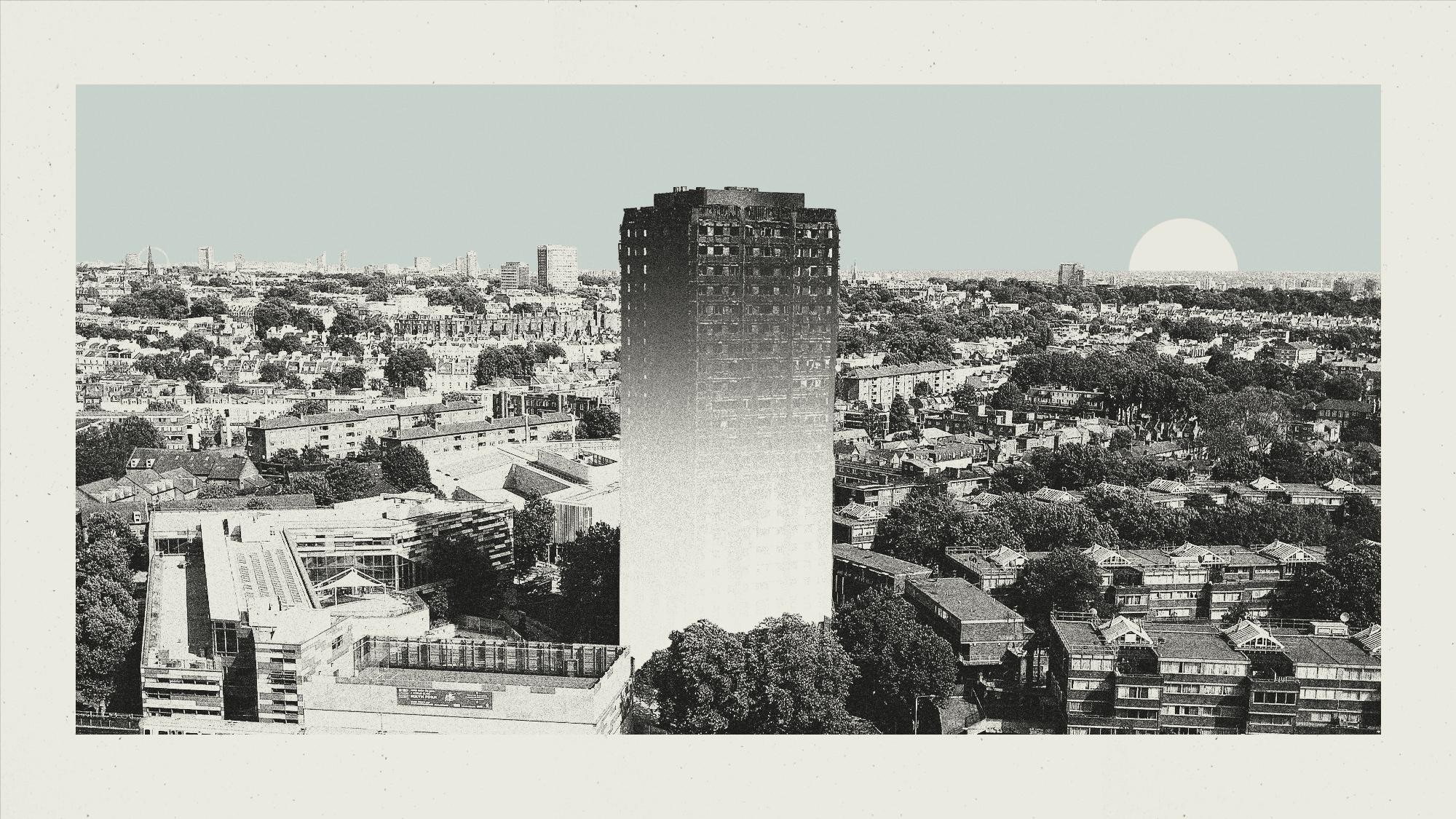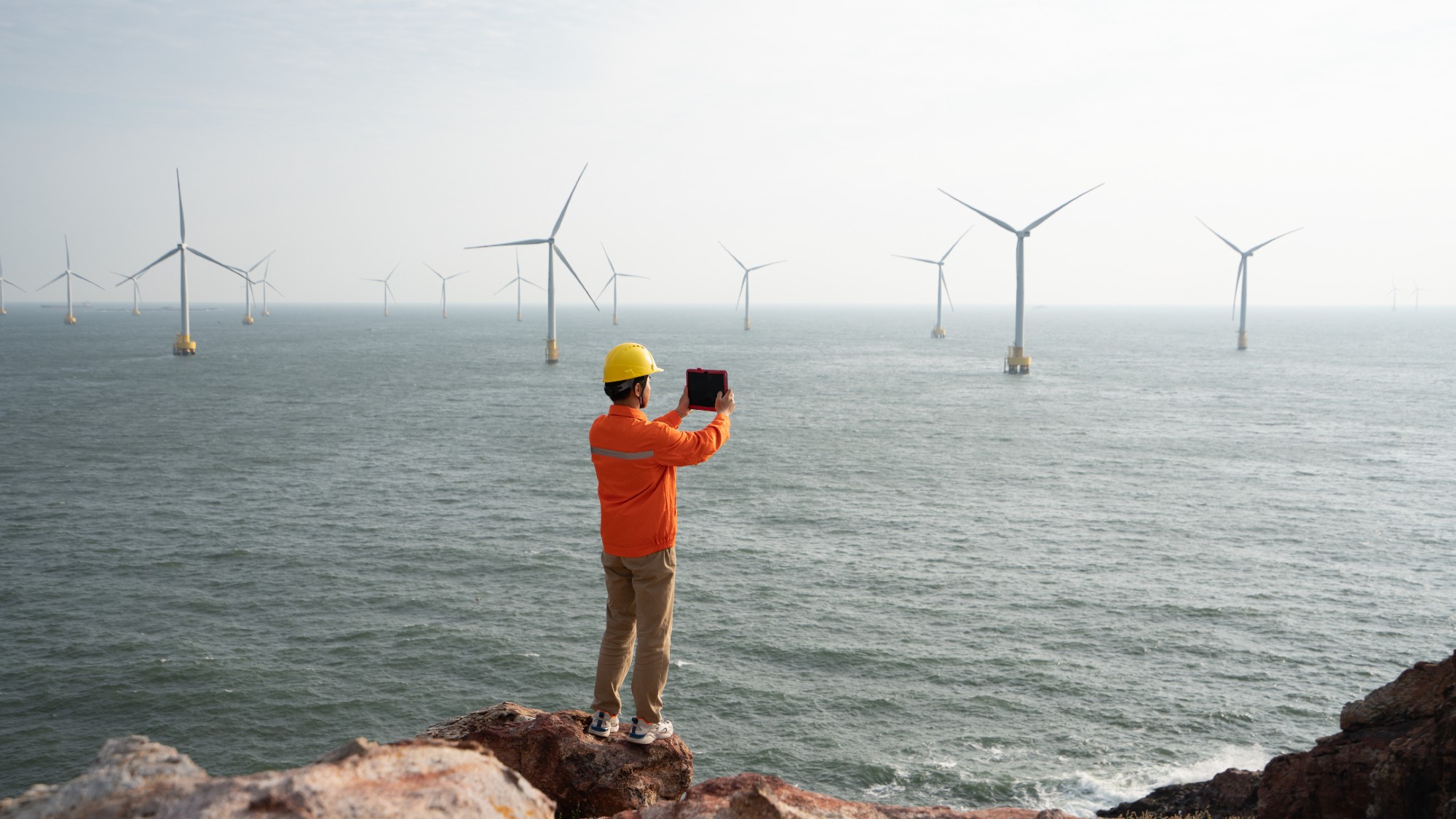Will Grenfell Inquiry report provide justice?
Final report blames central and local government for 'decades of failure' as well as 'dishonest' manufacturers for the spread of the combustible cladding

A free daily email with the biggest news stories of the day – and the best features from TheWeek.com
You are now subscribed
Your newsletter sign-up was successful
More than seven years after one of Britain's most catastrophic fires killed 72 people in the Grenfell Tower in North Kensington, the final report of a long-running inquiry has outlined the causes of the fire and the severe failings that led to it.
It pointed to central and local government for "decades of failure" and to "dishonest" manufacturers for the spread of the combustible cladding that lined the high-rise building. It said they created a "path to disaster" which, combined with the "shortcomings" of the fire brigade, led to the tragedy.
Despite the criticisms, there are concerns that the report will do little to bring justice for those who died in the fire. The government is not legally required to follow the recommendations set out by the inquiry and any police prosecutions are unlikely to emerge for two to three years.
The Week
Escape your echo chamber. Get the facts behind the news, plus analysis from multiple perspectives.

Sign up for The Week's Free Newsletters
From our morning news briefing to a weekly Good News Newsletter, get the best of The Week delivered directly to your inbox.
From our morning news briefing to a weekly Good News Newsletter, get the best of The Week delivered directly to your inbox.
What did the commentators say?
A "web of blame" has emerged from the report with findings of "incompetence, dishonesty, malpractice and indifference", said Robert Booth in The Guardian, but there is "no Poirot moment" where a "single guilty party is exposed".
Instead, it "found fault with virtually everyone involved" in Grenfell's refurbishment in 2015 for turning the building into what the report labelled a "death trap", said Mark Landler in The New York Times.
The tragedy has "haunted Britain" ever since, added Landler, and it has become a "politically charged symbol of the costs of deregulation and of the persistent social inequality in Britain’s capital".
Yet there is unlikely to be a swift and simple road to justice. The victims' relatives "expressed satisfaction" that a "chain of culpability" had been established by the report, but remained "frustrated" that "people had not yet been brought to justice".
A free daily email with the biggest news stories of the day – and the best features from TheWeek.com
Despite the inquiry's findings, nothing has been "concluded in a real way", Yvette Williams from campaign group Justice4Grenfell said in The Mirror. Although recommendations have been made, for the families of victims and those who lost their homes it is "just another step" and "not a day of justice” until "real" punishment is dispensed.
Many of those affected had "lost faith in the process" before the delayed report was even published given the "agonising", said Ayshea Buksh at the BBC, and remain "sceptical" that it will serve any justice. They wanted "a police inquiry first before this enormous and expensive public inquiry", but will now face a further wait for any police action.
What next?
"Attention will next turn to Scotland Yard", wrote Booth in The Guardian, which said it would investigate "58 individuals and 19 organisations for possible crimes" including corporate and individual manslaughter.
The police said that it was necessary to wait for the conclusion of the inquiry before launching its criminal investigation and, given the complexity of the case, any charges are "unlikely to come before late 2026", said The Independent.
Prime Minister Keir Starmer said the government would "carefully consider the report and its recommendations" to ensure a similar disaster "cannot occur again". However, he said a "further and more in-depth debate" on the findings would be "held at a later date".
Richard Windsor is a freelance writer for The Week Digital. He began his journalism career writing about politics and sport while studying at the University of Southampton. He then worked across various football publications before specialising in cycling for almost nine years, covering major races including the Tour de France and interviewing some of the sport’s top riders. He led Cycling Weekly’s digital platforms as editor for seven of those years, helping to transform the publication into the UK’s largest cycling website. He now works as a freelance writer, editor and consultant.
-
 The Olympic timekeepers keeping the Games on track
The Olympic timekeepers keeping the Games on trackUnder the Radar Swiss watchmaking giant Omega has been at the finish line of every Olympic Games for nearly 100 years
-
 Will increasing tensions with Iran boil over into war?
Will increasing tensions with Iran boil over into war?Today’s Big Question President Donald Trump has recently been threatening the country
-
 Corruption: The spy sheikh and the president
Corruption: The spy sheikh and the presidentFeature Trump is at the center of another scandal
-
 How are Democrats turning DOJ lemons into partisan lemonade?
How are Democrats turning DOJ lemons into partisan lemonade?TODAY’S BIG QUESTION As the Trump administration continues to try — and fail — at indicting its political enemies, Democratic lawmakers have begun seizing the moment for themselves
-
 How did ‘wine moms’ become the face of anti-ICE protests?
How did ‘wine moms’ become the face of anti-ICE protests?Today’s Big Question Women lead the resistance to Trump’s deportations
-
 How are Democrats trying to reform ICE?
How are Democrats trying to reform ICE?Today’s Big Question Democratic leadership has put forth several demands for the agency
-
 Why is Tulsi Gabbard trying to relitigate the 2020 election now?
Why is Tulsi Gabbard trying to relitigate the 2020 election now?Today's Big Question Trump has never conceded his loss that year
-
 Will Democrats impeach Kristi Noem?
Will Democrats impeach Kristi Noem?Today’s Big Question Centrists, lefty activists also debate abolishing ICE
-
 Do oil companies really want to invest in Venezuela?
Do oil companies really want to invest in Venezuela?Today’s Big Question Trump claims control over crude reserves, but challenges loom
-
 What is China doing in Latin America?
What is China doing in Latin America?Today’s Big Question Beijing offers itself as an alternative to US dominance
-
 Why is Trump killing off clean energy?
Why is Trump killing off clean energy?Today's Big Question The president halts offshore wind farm construction